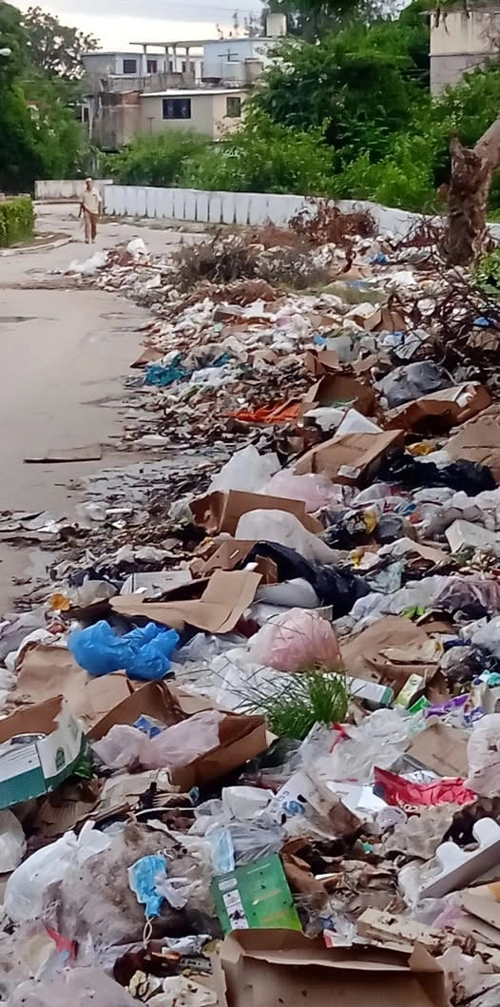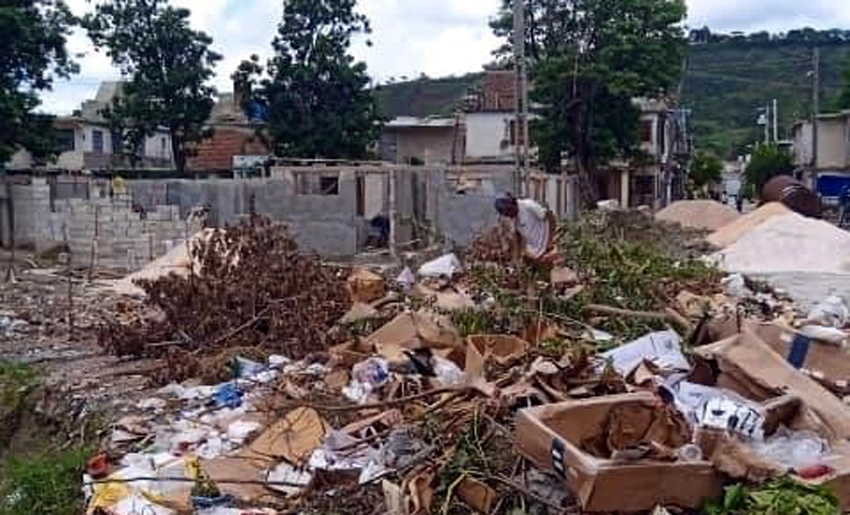Walking through Holguin today hurts the soul. The city, our city, bears the weight of a crisis that affects us all on its sidewalks and street corners. Where once there were clean spaces, trash now accumulates everywhere. Reflecting shared difficulties and responsibilities we must assume.
Collection cycles have been extended more than desired. A reality explained by the complexities facing the municipal service. The situation with the fuel shortage and the availability of labor create a scenario where the workers’ efforts are not always sufficient to maintain the pace of cleanliness the city requires.
However, this situation goes beyond the streets. The lack of recycling habits means that materials with potential for reuse end up. Increasing the volume of what we discard. Every plastic, every cardboard that we don’t separate, is a small contribution to a greater difficulty.
The most worrying thing is the direct consequences on health. The garbage accumulated on street corners, in vacant lots, and along riverbanks is showing its most lethal side: the recent emergence and spread of dengue, Zika, and chikungunya cases.
The equation is simple, brutal, and preventable: abandoned waste is the breeding ground. The Aedes aegypti mosquito is the vector that brings the disease into homes. Every torn bag, every bottle cap, becomes a potential breeding ground.
Added to this is the fact that rodents find conditions to proliferate in this situation. Adding another risk to the well-being of the community.

This reality challenges us as a society. It is easy and fair to point to the structural causes: collection cycles. Extended by the fuel shortage and the critical lack of technology and labor. However, with the withdrawal of the state service, an uncomfortable question arises: Where does citizen responsibility lie? Throwing a bag of trash on any street corner at night has become a normalized act, a symptom of evaded co-responsibility.
While institutions seek solutions within their means, each of us can contribute in our own way. Keeping the environment clean, avoiding dumping waste where it shouldn’t be, and promoting best practices among neighbors are actions that, combined, can change the landscape.
Cleaning Holguin is not just the task of a few, but the commitment of all who live and love it. It’s in our hands to turn the current concern into an opportunity to demonstrate that, united, we can better care for this city that belongs to us.
Cleaning the city will not only be a matter of trucks and fuel. But of recovering a sense of belonging and respect for the common space we all inhabit. The challenge is everyone’s, and the time to act is rotting in the corners.
By: Daimy Peña Guillén
- Installation of Photovoltaic Systems in Rural Communities in Holguin - 19 de January de 2026
- 39th City Salon Opens in Holguin - 19 de January de 2026
- Habanos Festival Among Cuba’s Most Important Tourism Events - 19 de January de 2026

